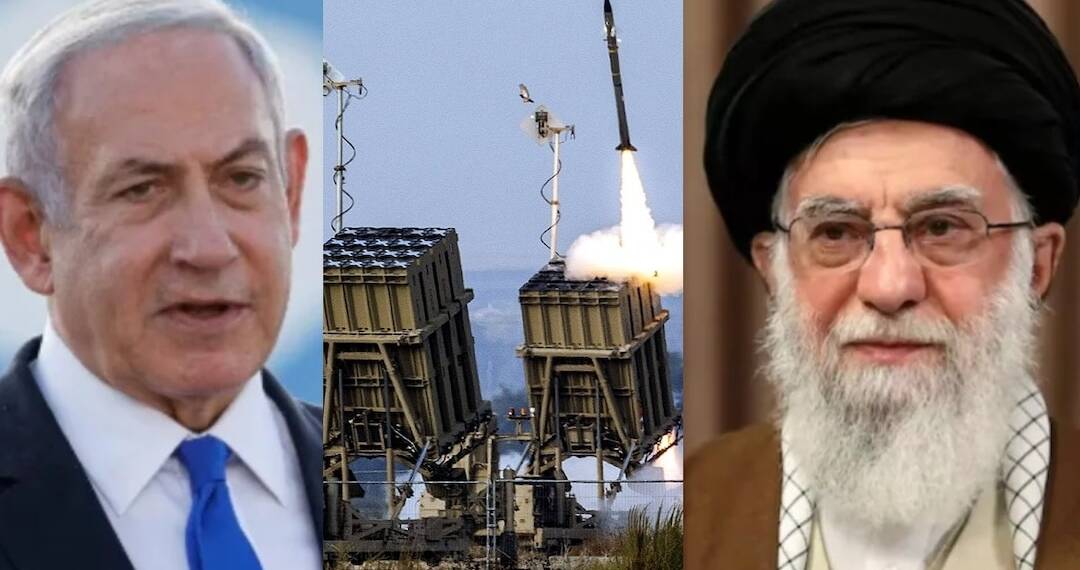As Iran rapidly reconstructs its ballistic missile program following months of regional tension and military losses, evidence is mounting that China is playing a crucial—if discreet—role in helping Tehran regain its deterrent edge. Western officials now face a growing challenge: how to contain Iran’s missile resurgence without sparking a broader confrontation across the Middle East.
European intelligence sources say several shipments of sodium perchlorate, the main precursor in the production of the solid propellant that powers Iran’s mid-range conventional missiles, have arrived from China to the Iranian port of Bandar Abbas since the so-called “snapback” mechanism was triggered at the end of September.
Those sources say the shipments, which began arriving on September 29, contain 2,000 tons of sodium perchlorate bought by Iran from Chinese suppliers in the wake of its 12-day conflict with Israel in June. The amount is considered enough to fuel roughly 500 ballistic missiles as Iran stocks up. The purchases are believed to be part of a determined effort to rebuild the Islamic Republic’s depleted missile stocks. Several of the cargo ships and Chinese entities involved are under sanctions from the United States.
Iran’s Rebuilding Drive
Satellite imagery and Western intelligence assessments suggest that Iran is rebuilding several key missile production and testing facilities damaged during earlier clashes, particularly those linked to its solid-fuel ballistic missile program.
Sites such as Parchin, Shahroud, and Khojir have shown new construction and activity, consistent with missile assembly and fueling infrastructure.
According to defense analysts, Tehran’s priority is to reconstitute its solid-fuel missile production lines. Solid-fuel missiles can be launched more quickly than liquid-fueled models, making them a key component of Iran’s “second-strike” deterrent against Israel or U.S. bases in the region.
One obstacle remains: Iran reportedly lacks industrial “planetary mixers,” the machines used to produce solid propellant at scale. But procurement efforts—some linked to Chinese intermediaries—suggest that Tehran is moving to close that gap soon.
Iran’s ambitions extend beyond direct deterrence. It is also replenishing supplies for its regional allies and proxies, including Hezbollah in Lebanon, the Houthis in Yemen, and various militias in Iraq and Syria. These groups form part of Tehran’s so-called Axis of Resistance, allowing Iran to project power without open confrontation.
China’s Role: Dual-Use Support and Strategic Convergence
Reports from Western intelligence and investigative outlets indicate that Chinese companies have supplied or facilitated shipments of dual-use materials essential to Iran’s missile production. Among the most significant are sodium perchlorate and ammonium perchlorate—chemicals that form the oxidizers for solid rocket fuel.
This summer, Iranian-flagged vessels reportedly loaded over 1,000 tons of sodium perchlorate in Chinese ports. Analysts estimate that such quantities could be used to manufacture several hundred short- and medium-range ballistic missiles.
China’s role, however, stops short of direct arms transfers. Beijing maintains that any exports are for civilian use and that it opposes nuclear or missile proliferation. Still, the pattern fits into a broader Sino-Iranian strategic partnership, solidified by a 25-year cooperation agreement signed in 2021.
For China, the calculus is pragmatic:
Iran is a major energy supplier.
Its location is vital to China’s Belt and Road Initiative.
Support for Iran indirectly challenges U.S. influence in the Gulf.
Yet, Beijing has been careful to avoid overexposure. It continues to trade with Israel and Gulf Arab states, balancing relationships to preserve its image as a neutral power broker in the Middle East.
The West’s Countermoves
The U.S. and its allies have taken a multi-pronged approach to limit Iran’s missile resurgence.
Sanctions and Export Controls
In May 2025, Washington announced new sanctions targeting Iranian and Chinese individuals and firms accused of aiding Tehran’s missile programs. The restrictions cover components such as carbon fiber, guidance electronics, and chemical precursors.
The United Nations Security Council has also reimposed snapback sanctions after efforts by Russia and China to delay them failed.
Meanwhile, Western intelligence agencies are tightening controls on dual-use exports and stepping up efforts to interdict illicit shipments through the Persian Gulf and Indian Ocean.
Regional Military Posture
The U.S., Israel, and Gulf allies are expanding missile-defense cooperation—deploying THAAD, Patriot, and Iron Dome systems across key strategic zones. Joint naval patrols in the Red Sea and Arabian Gulf aim to disrupt weapons transfers to Iranian proxies.
Despite growing tension, Washington and European capitals are still exploring limited diplomatic engagement with Tehran, hoping to link missile restraint to broader security talks. But Iran’s leadership views its missile arsenal as non-negotiable, framing it as the core of national defense.
A New Strategic Equation
China’s assistance, even if limited to industrial inputs, gives Iran breathing room to rebuild faster than sanctions alone can impede. The West now faces a more complex challenge—an Iran that is neither fully isolated nor easily deterred, with Chinese supply chains offering partial resilience against Western pressure.
Analysts warn that this dynamic could spark a regional arms race. As Iran rebuilds its missile forces, neighboring countries such as Saudi Arabia, the UAE, and Israel are likely to expand their own arsenals and defense systems, increasing the risk of miscalculation or escalation.
For now, Iran’s full missile production capacity has not been restored. But the trajectory is clear: Tehran is rearming, Beijing is helping indirectly, and Washington is scrambling to contain a new phase of Middle Eastern power competition.








